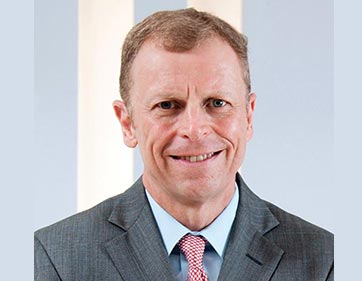GE keen to share sustainability secrets
 GE’s ASEAN CEO Stuart L. Dean, who spoke at the recent Malaysian Directors Academy’s Building High Performance Directors Programme in Hanoi, told VIR’s Hoang Mai about GE’s experience in building a sustainable business and how Vietnamese firms can learn from GE’s global practices.
GE’s ASEAN CEO Stuart L. Dean, who spoke at the recent Malaysian Directors Academy’s Building High Performance Directors Programme in Hanoi, told VIR’s Hoang Mai about GE’s experience in building a sustainable business and how Vietnamese firms can learn from GE’s global practices.
With more than 130 years experience in global business, what are the main pillars in GE’s sustainable business success story?
It starts with knowing that we constantly have to change. The world is changing around us, so companies need to change to keep abreast of that. GE is a company that does a pretty good job in continuously changing and innovating. GE primarily focused on power generation and lighting, but now we’ve also moved onto oil and gas, wind and solar technologies. GE has also met growing global demands for better healthcare and we’ve added aviation to our portfolio. We like the mix of businesses that we’re in right now and we also like being able to exchange practices and technologies across those businesses which give us more competitive advantages.
But at the end of the day, it’s our commitment that is the most important thing to our customers, countries where we do business and the communities in which we operate. It’s not to say that GE is perfect, but hopefully we’re doing things better every day.
If you asked me what GE’s most valuable asset was, I’d say it’s our reputation and that helps us win business. You can take a hundred years to build a reputation that can be destroyed very quickly. We take that very seriously and we expect all of our leaders when they run a part of the business, to work on the basis of this principle.
Human resources play a key role in the sustainability strategies of any business. How does GE take this factor into account?
It starts with hiring great people. Ideally we would hire people directly out of university so we get them in their young and passionate stage, but have a lot to learn. But part of that learning must include what we want from leaders in GE and what the culture of the company is. The earlier people enter that environment, the better they are at taking on the new culture. We’re trying to create a global culture. We’re in 130 countries so that’s an evolution in how we do business. About a third of our people start at GE right after university; but two-thirds we hire mid-career and normally they come in with a lot of knowledge and expertise so we hire them for that. Long-term success depends on accepting and adapting to the culture.
GE has developed a diverse range of businesses in Vietnam including infrastructure, oil and gas and healthcare. How well have GE Vietnam’s businesses applied GE’s global corporate sustainability development practices and what are their challenges in the context of Vietnam?
My view is that it’s easy to bring GE’s global best practices to Vietnam. I think Vietnam wants companies to do business in the right way, which includes high environmental protection standards and a respect for human rights and dignity in the workplace. These are also really requirements for GE to do business anywhere around the world.
Many Vietnamese companies would be keen to learn lessons and experiences in terms of sustainable development from global companies like GE. What advice would you give them to develop corporate sustainability?
It’s part of our philosophy to share our global practices with our partners, suppliers and customers. We share a lot of our best practice approaches in Vietnam and one reason for our success in Vietnam and in other parts of the world is our willingness to share and be open.
I think it is a great time for Vietnamese companies to start thinking about the opportunities to expand through ASEAN. In 15 to 20 years, I believe ASEAN will be highly integrated from an economic point of view and that will give companies invested across ASEAN much more scale than those that have invested in one country. So I wouldn’t say it’s an urgent issue of strategic competitiveness, but I think at some point, Vietnamese companies should leverage the scale of opportunities in ASEAN.
Every company has its own challenges, so they have to firstly recognise what those challenges are, whether it is their culture, their history and after that they have to be serious about getting better. At the end of the day it’s about changing the culture if you want to change the company and that’s the toughest thing to do.
What the stars mean:
★ Poor ★ ★ Promising ★★★ Good ★★★★ Very good ★★★★★ Exceptional
Latest News
More News
- Pegasus Tech Ventures steps up Vietnam focus (February 05, 2026 | 17:25)
- The generics industry: unlocking new growth drivers (February 04, 2026 | 17:39)
- Vietnam ready to increase purchases of US goods (February 04, 2026 | 15:55)
- Steel industry faces challenges in 2026 (February 03, 2026 | 17:20)
- State corporations poised to drive 2026 growth (February 03, 2026 | 13:58)
- Why high-tech talent will define Vietnam’s growth (February 02, 2026 | 10:47)
- FMCG resilience amid varying storms (February 02, 2026 | 10:00)
- Customs reforms strengthen business confidence, support trade growth (February 01, 2026 | 08:20)
- Vietnam and US to launch sixth trade negotiation round (January 30, 2026 | 15:19)
- Digital publishing emerges as key growth driver in Vietnam (January 30, 2026 | 10:59)















 Mobile Version
Mobile Version